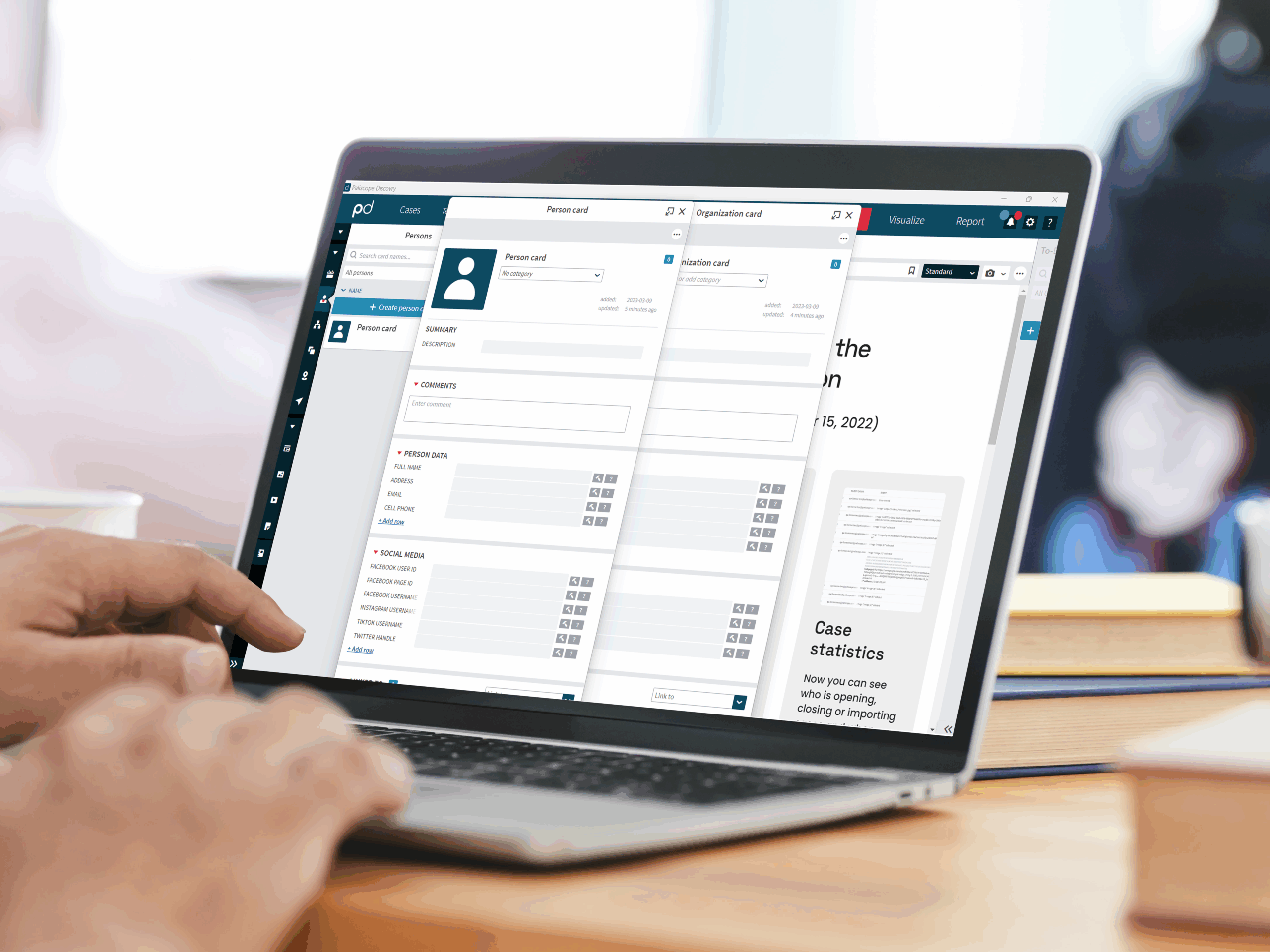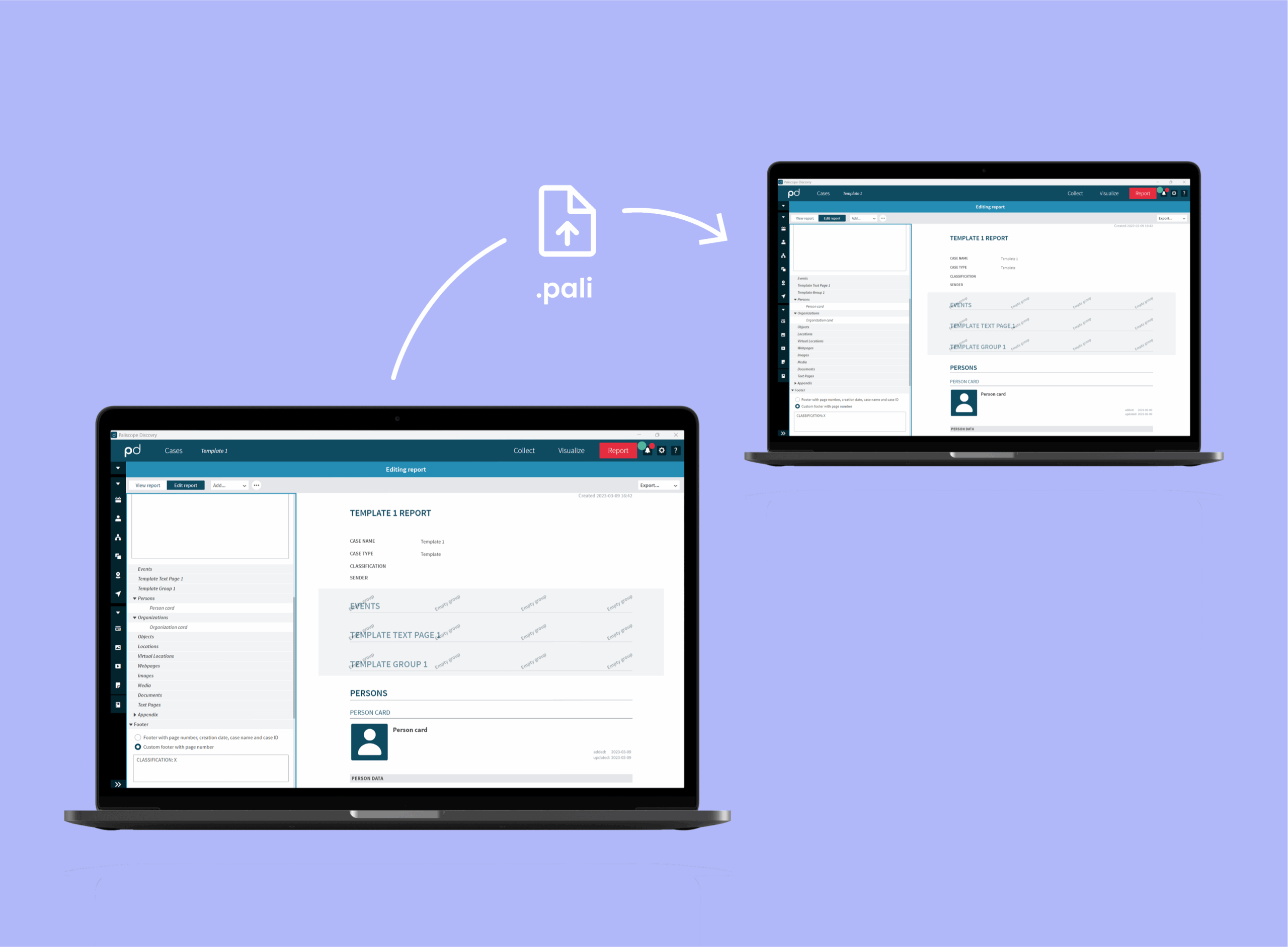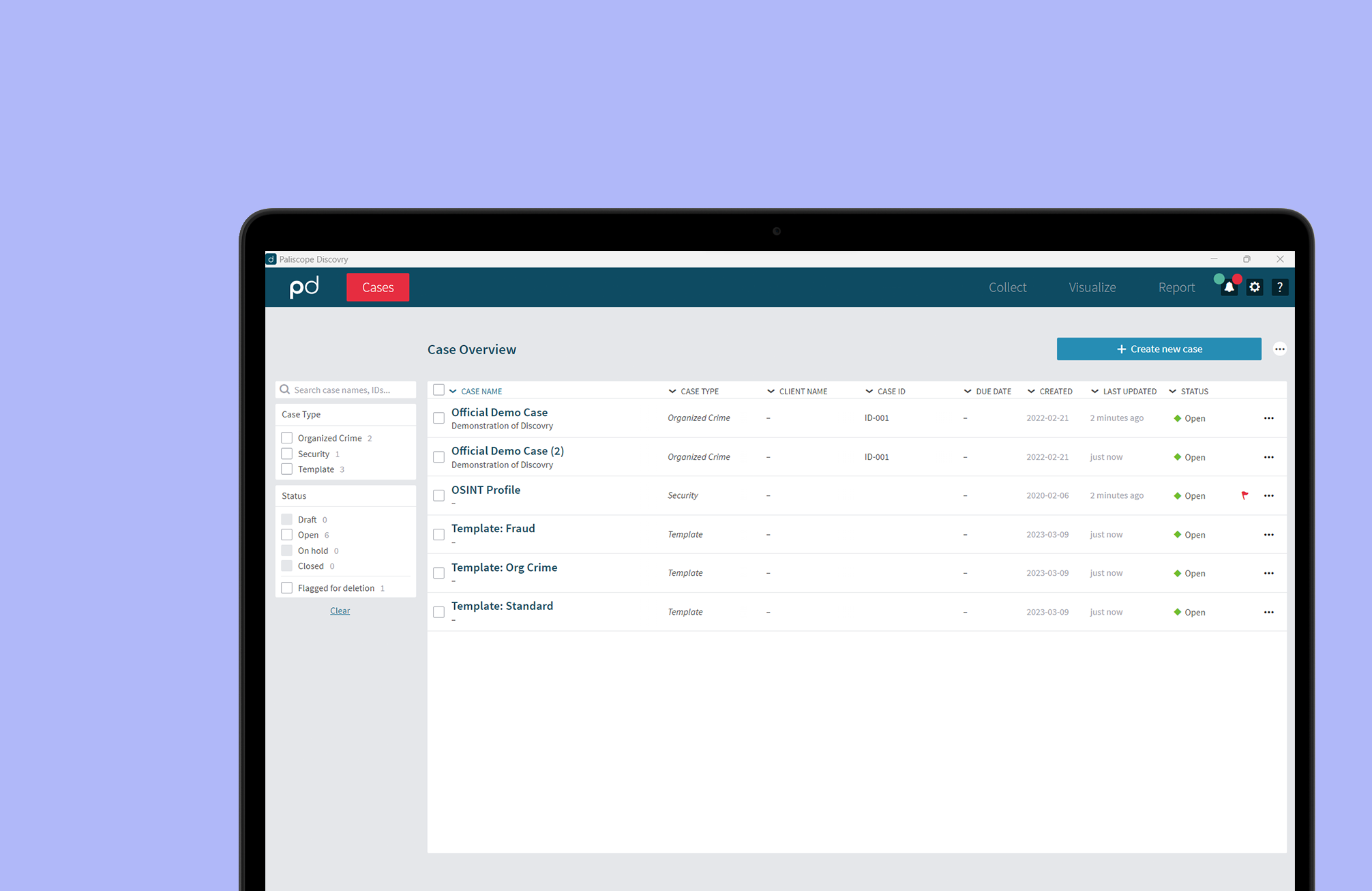Being able to swiftly build structured cases out of piles of data has always been a highly appreciated advantage of Discovry. With this release, we’re boosting the case-building process to the next level of efficiency with the introduction of customizable templates.
One of the secrets to working efficiently and ensuring you don’t miss important steps in your investigation is standardization. Now, with the ability to design and use your own standard case templates in Discovry, not only will you get a head start every time you embark on a new case, but you’ll also be able to more easily standardize output across your entire team or organization.
Keep reading to learn more about templates and other updates you can expect to find in this Discovry release.

Now you can build your own case setup. Specify which case details should be included, which cards should be used, and what the card layout should look like (data rows, sections, etc.). Then copy that case template or export/import it as a pali-file, and you’re good to go.
Among the possibilities that case templates offer is the ability to customize the design and setup of your reports. Having a template for your reports will allow you—and anyone else collaborating on the report—to skip the tedious work of manually restructuring the report every time you create a new case, achieve a more coherent design from report to report, and locate the right information quickly when needed. You can choose to add specific groups, cards, text pages, footers, and more.

Don’t forget to share templates with your team to get everybody aligned and up and running faster. Establishing templates minimizes the time needed to get aligned on case and report structures. Why not create standard templates for different kinds of investigations? Templates can also help speed up the workflow by guiding users on what information to fill in and how to get started on the case.
By combining data rows with Discovry Tools lists you can both indicate what data to fill in, and guide the user on where they can locate the information— Discovry will even allow them to perform the search on the spot.
You can now maintain multiple versions of the same case. When importing an updated version of an existing case (e.g., perhaps your colleague has been working on it and returned it to you), you will now have the option to overwrite or save it as a new copy—preventing information from being lost in the process.
With this release we have again listened to our users and addressed some of the finer details of the Discovry experience. A highlight worth mentioning is that the report will no longer display the local file paths from imported files. When importing a file from a local folder, only “Local upload” will appear as the source. This ensures more privacy for local file paths. You can still see the information on the cards in Collect mode.

Discovry’s Product Owner, Kris, guides you through the new features from the release. Current Paliscope users can watch the recording on myPaliscope.
No need to worry about evidence documentation and report formatting. Paliscope Build automates all that - keeping your cases structured, secure and easy to hand over.
Find what you are looking for with Paliscope Explore - enabling analysts and investigators to triage large amounts of data and deep dive into the findings.
Process all your data in one place, collaborate across teams, search for anything, and more.